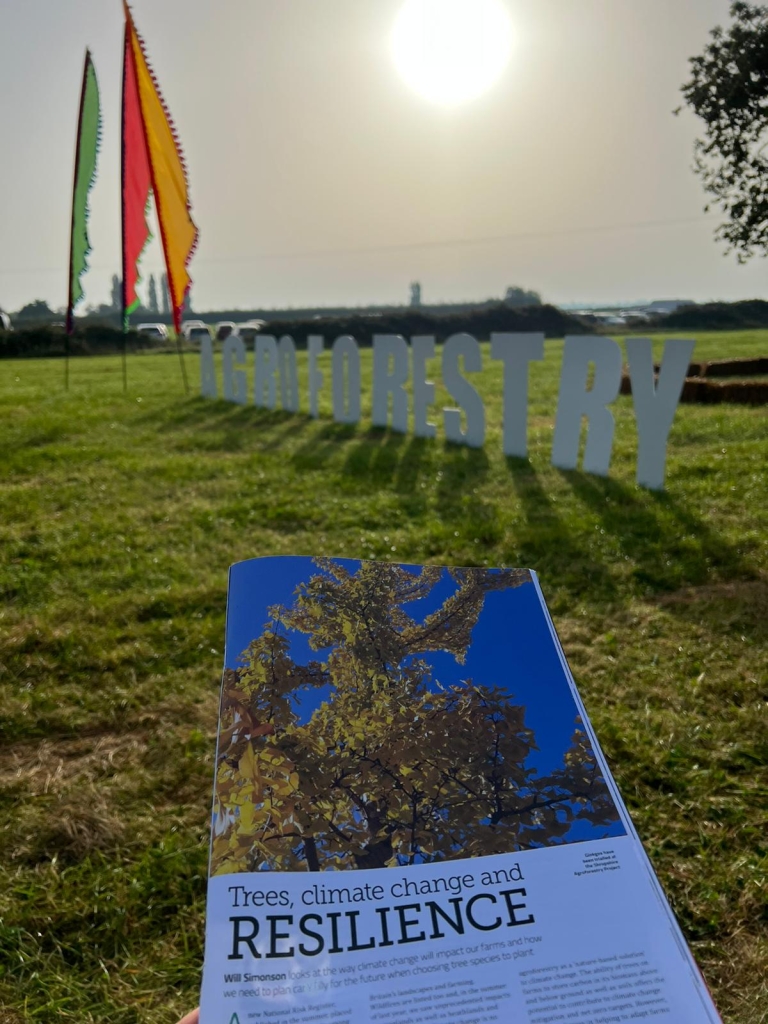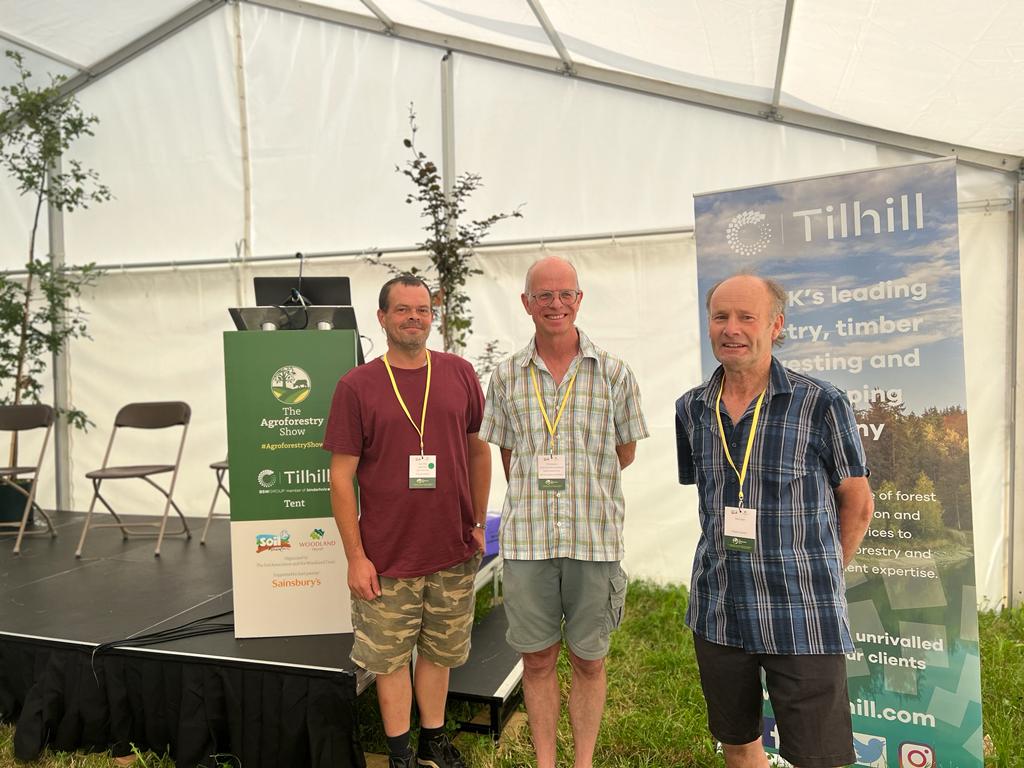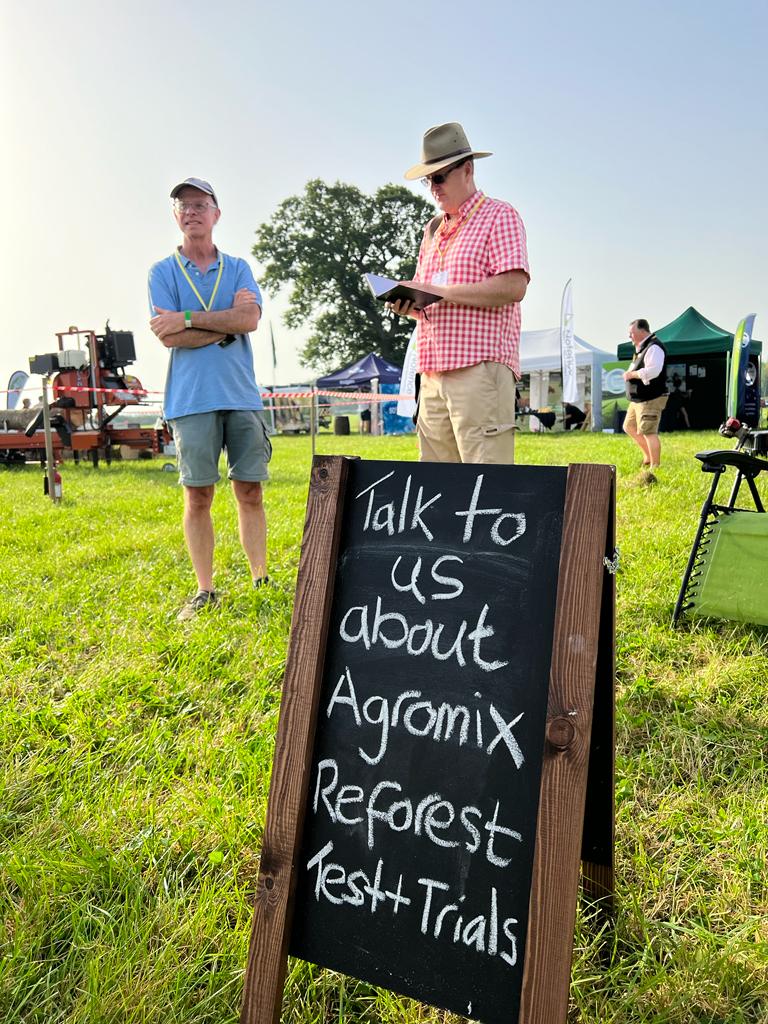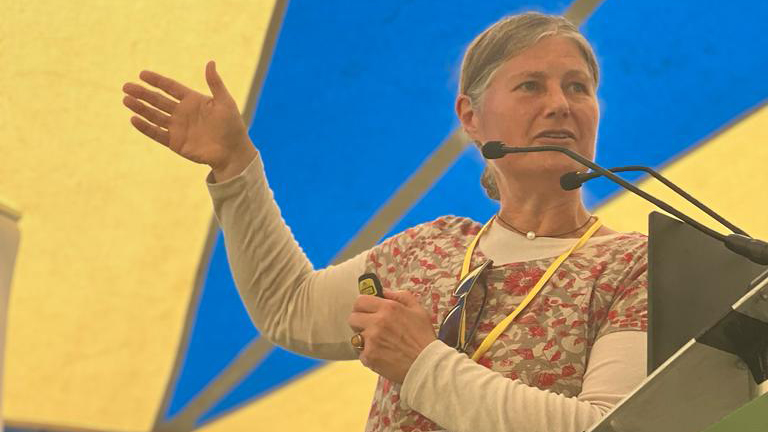It is not the first time that we have heard the sentiment that ”Agroforestry has come of age.” It was heard at the Agroforestry Conference at Silsoe in 2017, but the scale of the Agroforestry Show, organised by the Soil Association and the Woodland Trust at Helen Browning’s Eastbrook Farm in Wiltshire, suggested that we are indeed at the ‘beginning of change.’ The Soil Association proclaimed that there was consensus across around 1200 delegates that trees are key to ensuring food production while tackling climate change and biodiversity loss.

The show saw farmers, foresters, researchers, environmentalists, and policy makers sharing insights and advice on how to help farm businesses benefit from trees.
Eastbrook Farm in Wiltshire hosted two days of workshops and talks covering how agroforestry – combining trees with livestock or crops – can help both arable and pastoral farms to protect livestock, crops, soils, rivers, biodiversity, and climate.
ORC’s Principal Agroforestry Researcher Will Simonson took part in a session on Trees, climate change and resilience with Peter Aspin and Andy Dibben. Listen to the session here. Will wrote an article on this theme in the Soil Association’s Organic Farming magazine here.
“The research show how it is possible to match the projected climate for any one area with a location where that climate is contemporary to understand, from these ‘climate analogs’, what trees may do well in the future”
Dr Will Simonson, Organic Research Centre

Will also featured in the Meet the Farmers podcast ‘What is the future for Agroforestry?’ Ben Eagle asked Will ‘How can agroforestry be designed with climate in mind?’ It’s all worth a listen, but Will’s interview starts at 19:00 minutes in.

The presence of trees in livestock systems can act as an important buffer leading to an increase in system resilience. There is considerable potential for trees to support good welfare for farmed animals including protection against extreme weather patterns and optimising the use and value of home-grown feedstuffs. In this session, the panellists, including ORC’s Lindsay Whistance, espoused the major benefits of re-connecting animals with tree-enriched landscapes, covering aspects of shade and shelter and nutrition and medicine. Listen to the recording here.

A partnership of organisations (Soil Association, Woodland Trust, Organic Research Centre, Finance Earth, SRUC and Scottish Forestry) has been supported with NEIRF funding to investigate the feasibility for carbon finance to help support the implementation of new agroforestry projects in the UK. In this session we heard from project partners, including ORC’s Colin Tosh about the conclusions from the Agroforesty Carbon Code project and the recommendations for next steps. Listen to the recording here.
Soil Association Chief Executive Helen Browning, who hosted the event on her organic farm where she has been running an agroforestry project for seven years, said: “The extraordinary number of people here have shown there’s a real thirst for knowledge on agroforestry from both the traditional forestry and farming sectors. Farming with trees is clearly going to be a huge part of our futures, and never has that been more evident than this week where we’ve experienced 30-degree heat in September. If our farms are going to be resilient to face the future with happy and healthy animals and crops that grow well then trees are going to be a big part of that, as well as being very useful for reaching our environmental goals. It’s a win win.
“There needs to be universally available help for farmers and we need to change the rules of the game so that tenant farmers in particular aren’t stuck in a system that doesn’t allow land-use changes. We have gone beyond a consensus that trees are a good thing, into the practical detail of how to do it. So, it is no longer about the ‘why’ or ‘whether’ but into the ‘how’ we do it – whether that’s knocking down the barriers such as tenure and policy, or into the specifics of how, together, we crack on with it successfully in a cost-effective way.”
Woodland Trust Chief Executive Darren Moorcroft closed the show by saying he hoped all had left “inspired and energised” by the fact that agroforestry is the future and that “the UK now needs to reach the tipping point to take us from a really powerful set of early adopters into a mainstream conversation”.
He added: “Our aim was to create a vibrant agroforestry movement that will continue long after the marquees have been taken down. It was encouraging that we had representatives from the UK government and all three devolved administrations speaking yesterday sharing their common beliefs that agroforestry should have a key role in future policy development. It is up to us all to help support this by sharing our practical experiences so that governments from across the UK develop policy frameworks that will adequately support the establishment and maintenance of a wide diversity of agroforestry systems. This includes the frameworks to support new markets for both the services and products delivered via agroforestry.”
Many thanks to the Soil Association for permission to use the recordings of the sessions.
